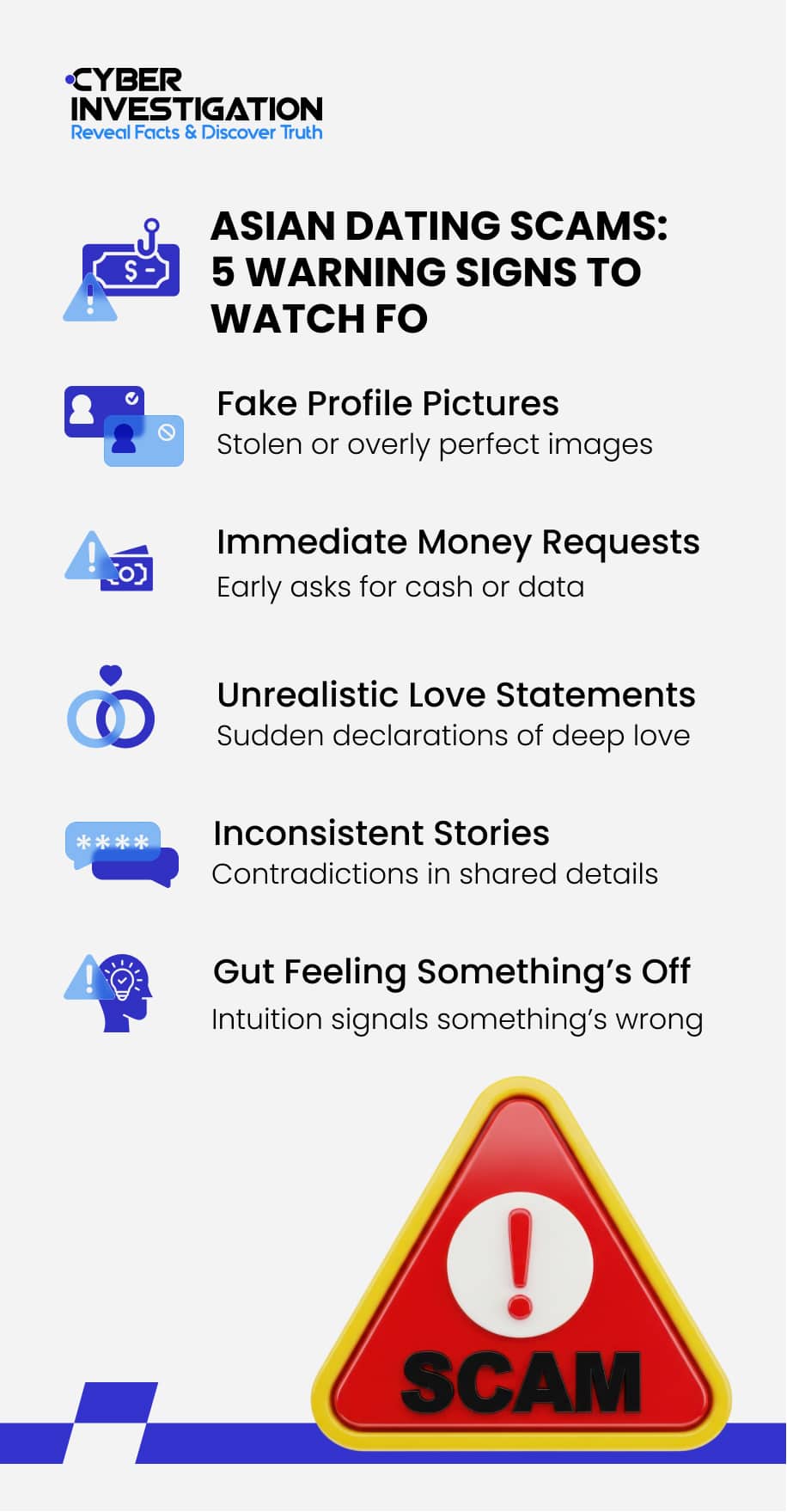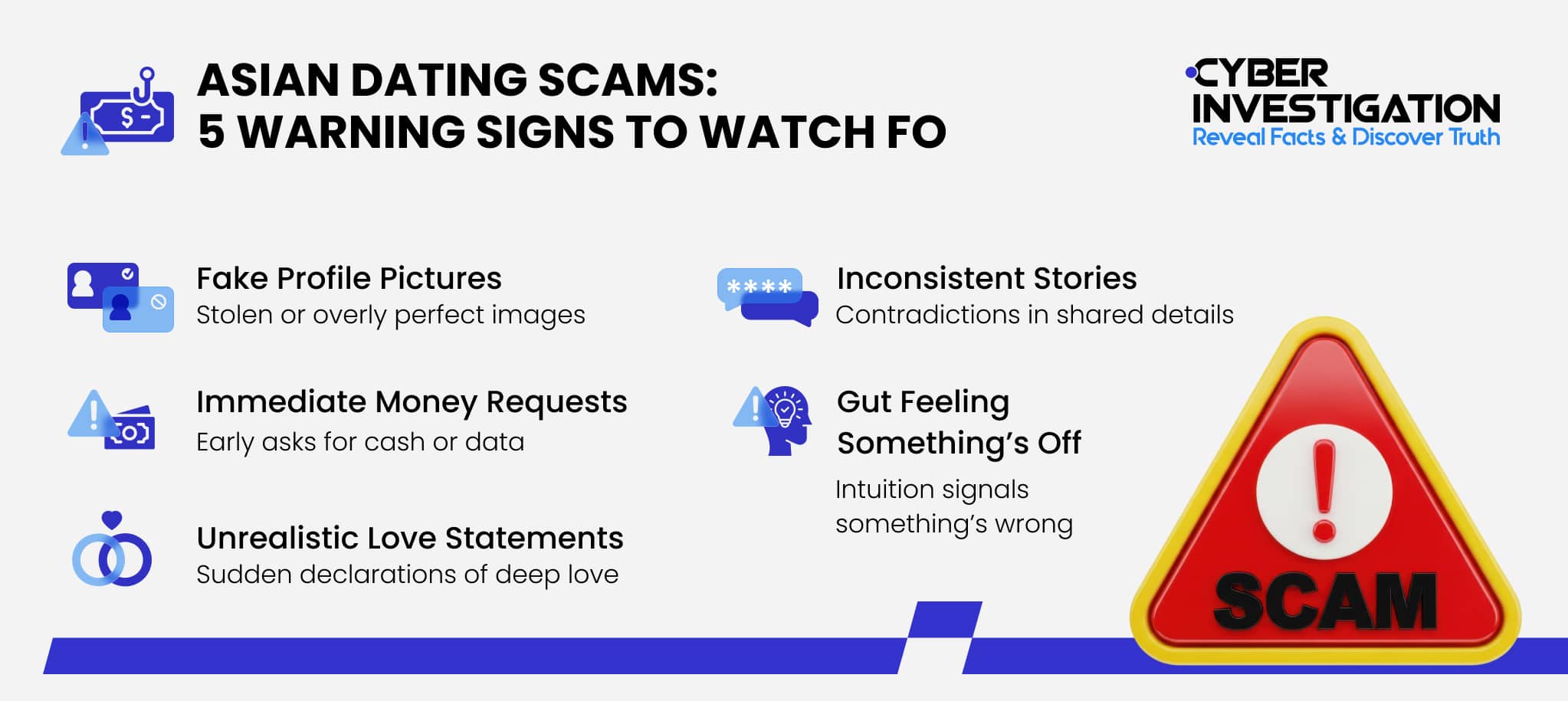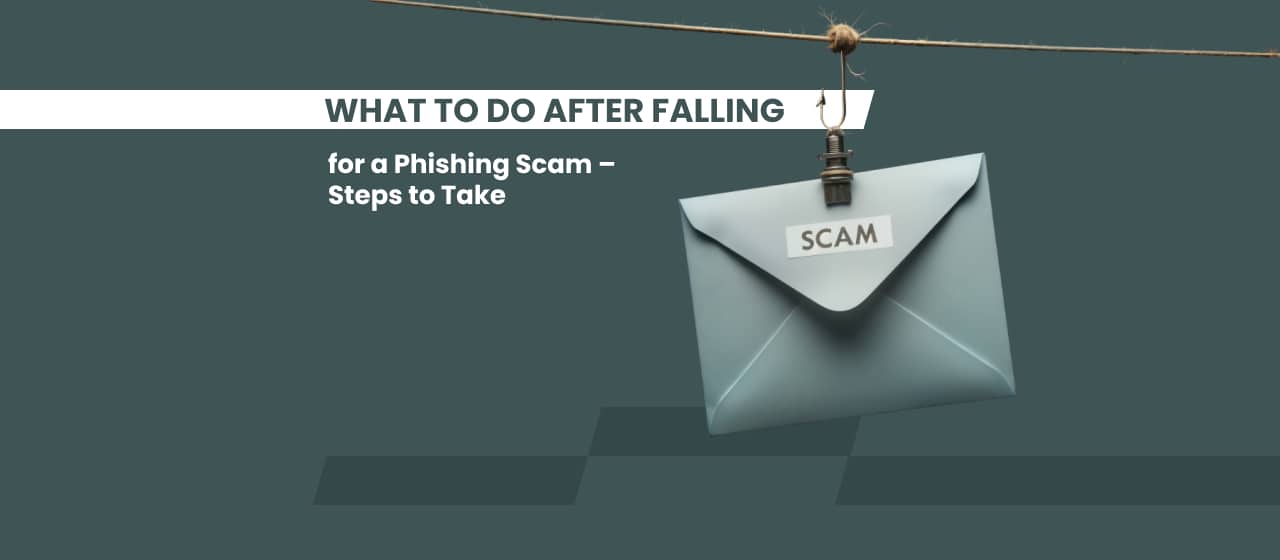Oxford University released the inaugural “World Cybercrime Index” in April 2024. Of the top ten countries on the list, three were from the continent of Asia. Of the crimes committed in these regions, dating scams reigned supreme. Organized call centers target hundreds of people from all around the world. The U.S. government estimates that Americans lost $10 billion to Asian scam operations, a 66% increase from the prior year. This blog will educate you on the signs of Asian dating scammers, the most common types, and how to stop the abuse from continuing.
Why are Dating Scams from Asia so Prevalent?
One of the largest driving factors perpetuating Asian dating scams is the existence of human-trafficking scam centers. These organizations lure in susceptible targets and force them to carry out their schemes. These targets are often financially burdened, being drawn in by offers like fake job listings.
In 2025, INTERPOL released data that showed that 90% of these human trafficking facilitators are located in Asia. Perpetrators use their target’s financial situation as leverage to force their compliance, as well as physical force. Additionally, the advent of AI technology has helped create convincing bait and blackmail material to fuel these scam centers.


Common Dating Scams Coming Out of Asia
Asian dating scams cover a wide range of different ways that cybercriminals can attack you. Their methods may differ, but their end goal is almost always your money. By being aware of the different types of scams that pop up frequently, you can better position yourself to stay safe.
Romance Scams
This involves someone posing as a potential romantic partner and asking their victim for money or personal information. These scammers often create elaborate stories about why they need money, such as medical bills or travel expenses. They may even go so far as to create fake documents or websites to make their story seem more legitimate. If you come across someone who seems too good to be true and requests money from you, you’re likely dealing with a romance scammer.
“Pig Butchering” Scams
On top of promises of love and commitment, Asian scammers will also manipulate their victims into investing in cryptocurrency. They may claim that they have access to insider information that guarantees a high return on your investment. This is usually followed by requests for personal or financial information or even money upfront to get started. Needless to say, this is a scam. No one has access to “insider information” about cryptocurrency, and any money sent will never be recovered.
Wrong Number Scams
Asian scammers can access data leaks to acquire phone numbers to target. Wrong number scams involve contacting a random phone number pretending they are trying to reach their friend. They will send a message along the lines of, “Hey Chris, are you still down to hang out Saturday?” Then, once the victim explains they have the wrong number, the scammer will apologize and make light of the situation. They will try to form a connection, claiming fate must’ve brought the two together. Many people continue the conversation and even develop relationships, allowing the perpetrator to manipulate their way into their wallet.
What are the Signs of an Asian Dating Scammer?
The best way to combat Asian dating scams is recognizing the early signs and preventing things from escalating further. To give yourself a stronger chance of avoiding these scams, here are signs to look out for when on your love search.
Fake Profile Pictures
A good rule of thumb is that if someone’s pictures look sketchy, they might be trying to hide something. Scammers are known for stealing other people’s pictures, often from wealthy or attractive individuals. They may even use images taken in professional photo shoots. If the images look too perfect to be a normal person, you should proceed with caution. You can perform a reverse image search to see if the photos exist elsewhere online.
Immediate Requests for Money or Information
Scammers try to get money from victims immediately by making up an emergency or asking for money directly. Or, they may ask you to divulge personal information such as login credentials or banking data. If someone does this early in your conversation, it’s likely best to end communication immediately and block them from your accounts. No matter how sad their sob story is, it’s never a good idea to send money or private information to people you don’t know online.
Unrealistic Love Statements
If someone you just met online is professing their undying love for you after only a few conversations, it’s likely they don’t mean what they say. They’re simply trying to gain your trust and sympathy so they can ask for money later on down the line. Be wary of anyone who seems too eager too soon. Casual flirting is expected with online dating, but extreme declarations of love and early mentions of marriage are red flags of emotional manipulation.
Inconsistent Stories
As we’ve addressed, Asian dating scams are typically operated by organized cybercrime groups. Individuals within these systems are often targeting multiple people at a time. This means they have multiple fabricated relationships to keep straight, which can lead to inconsistencies. If your new online match is struggling to maintain details of your conversation, it can be a huge indicator that they are not who they claim to be.
Something Just Feels Off
In some cases, it’s difficult to pinpoint exactly what is alarming about an online interaction. If something about them doesn’t seem right, trust your gut and move on. Plenty of genuine people are looking for romantic partners — you don’t need to waste time with someone who isn’t honest about who they are. It would be better to accidentally cut off a well-meaning individual than continue conversing with a cybercriminal.
Real-Word Case: How Victims are Trafficked into Scamming
In September 2025, Reuters published a piece covering nine victims who were trafficked by criminal gangs and forced to work at scam centers. They were victimized before the dating scams started and actually carried out the schemes against their will. Their stories help illustrate the underbelly of these organizations, allowing us to attack the root cause of these scams.
Of the nine victims, eight claimed they had initially been lured in by the promise of a high-paying job opportunity. Six said that they had been escorted by presumed Thai immigration officials to the location they were eventually trafficked from. These claims are consistent with those of many victims Kenya Ambassador has saved from Myanmar scam centers.
One victim, named Oly, recanted his experience from the airport through his abduction. He’d been ushered by who he believed were immigration officials to another area of the airport. There, he was met by a man wearing a shirt from the hotel he was supposed to be staying at.
The man proceeded to drive Oly to where he assumed would be his hotel in Bangkok. After taking a detour to “avoid traffic,” Oly fell asleep from the exhaustion of his long trip. When he awoke, their car had pulled up to two pickup trucks full of Chinese gang members with guns and knives. Oly would not be going to his hotel. Instead, he was taken to KK Park, a notorious scam center.
According to the United Nations, the experiences of these victims are unfortunately not unique. Hundreds of thousands of people from all over the world have been trafficked and forced to work at these centers over the last ten years. Financial situations and physical force are used to force victims into victimizing others, creating a perpetual cycle of cybercrime.
How to Stop and Report a Dating Scammer
Asian dating scams can be a serious issue, and taking the necessary steps to protect yourself and your personal information is important. Our experts recommend you take the following approach.
- Don’t Pay or Send Personal Information. As illustrated above, scammers will try a multitude of methods to coax their victims into compliance. A good way to avoid scammers is to never send money or confidential data to online users whose identity you cannot confirm.
- Document Evidence. You should take record of any elements that are relevant to the case. Include the scammer’s contact information or profile, the messages exchanged between you, and timestamps of the occurrence. This data will be necessary for future legal action.
- Report the Scam. You should notify all relevant authorities of the scam. Begin by notifying the online platform where the interaction took place. Next, file a report with your local police. You should also inform the FBI through their Internet Crime Complaint Center (IC3).
- Secure your Devices and Accounts. Update your passwords and end any unrecognized sessions on accounts that may have been compromised. Enable two-factor authentication if you haven’t already. Furthermore, you should scan your device for malware.
Another option is to hire professional investigators, like at Cyber Investigation Inc., for more specialized help combatting cybercrime. You can speak to one of our online representatives at Cyber Investigation to learn how our team can help you overcome an Asian dating scam. Reach out to us for expert help today.







